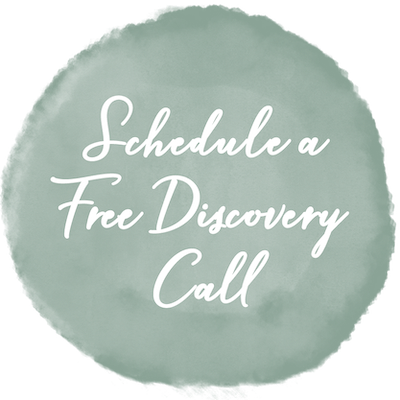When I was in the midst of my eating disorder recovery, my main goal was simply to survive - to get through the next meal, the next day, the next difficult emotion without turning back to the behaviours that had felt like a life raft for so long. The idea of ‘growth’ or finding ‘gifts’ in the struggle felt worlds away, as much as I hoped that one day I would be able to see my struggle this way.
Over the years of living life post-eating disorder, and now working with so many incredible clients as they navigate their own recovery journeys, I have absolutely come to see that recovery is so much more than just getting back to a baseline of who we were before. For many of us, the process of dismantling the eating disorder and rebuilding a life of meaning forces us to grow in ways we never could have imagined. And it’s actually a concept that has a name, and one I find validating and hopeful: post-traumatic growth.
Post-traumatic growth is not about saying that the struggle was a good thing. Rather, it’s about acknowledging that in the aftermath of a deeply challenging, and often traumatic life experience, it is possible for profound positive psychological changes to emerge. It’s the idea that through grappling with adversity, we can be rebuilt into something stronger, more appreciative, and more deeply connected to ourselves and the world.
And what’s so validating is that research is beginning to explore this very connection between eating disorder recovery and post-traumatic growth. Studies have found that many individuals who have recovered report significant growth in several key areas of their lives. The researchers who first coined the term (Tedeschi and Calhoun) identified five common domains of this growth, and when I read them, they deeply resonated with my own experience.
1. A Greater Appreciation for Life
When you’ve been living in a world that consists primarily of calories, numbers, and rules, and emotions of anxiety, depression and apathy, the return to a life of simple, everyday experiences with freedom can feel almost breathtaking. I remember the first time I truly enjoyed a spontaneous coffee and treat with a friend without anxiety, and the feeling of the sun on my skin when I allowed myself to rest instead of engaging in compulsive movement. These small moments, the ones so many people take for granted, felt truly wondrous. The struggle made the ordinary feel extraordinary, and I can still tap into that deep sense of gratitude to this day.
2. Deeper, More Meaningful Relationships
The eating disorder thrives in isolation and secrecy. Recovery, on the other hand, often requires a level of vulnerability we’ve never allowed ourselves, or dared, before. We have to let people in - therapists, dietitians, family, trusted friends. This process of opening up, of sharing our deepest fears and shame, forges connections that are more authentic and resilient. For me, it taught me who I could truly count on and deepened my empathy for the struggles of others in a way that nothing else could have. It also helped me to realize how loved and cared for I was.
3. Recognizing New Possibilities for Your Life
Before recovery, so much of my energy and identity was tied to my eating disorder. When I began to let it go, there was a terrifying void. But that void also became a space for new possibilities to grow. I never would have become a recovery coach, or found a passion for helping others in this specific way, if I hadn’t gone through what I did. My eating disorder years were extremely dark, but the recovery journey gave me a sense of purpose and of myself that feels so much more life-affirming and true.
4. A Greater Sense of Personal Strength
There were countless moments in my recovery where I was convinced I couldn’t go on. Facing a fear food, trying to accept my changing body, sitting with overwhelming emotions - it all felt impossible. But each time I did the thing that felt impossible, I discovered more strength inside of me that I never knew existed. There’s a quiet confidence that comes from knowing you have faced your deepest fears and survived. It’s a resilience that carries over into all other aspects of life.
5. Spiritual or Existential Development
For me, and for many clients I’ve worked with, recovery demanded that I find a deeper, more unconditional way of feeling good about myself. I could no longer rely on external validation from my weight or my discipline. This forced me to go inwards, to connect with what I’ve come to call my Soul Self or True Self or simply, my heart vs my head, love vs fear. It was a journey of discovering who I was apart from my appearance and my accomplishments, and learning to feel safe as her. This spiritual deepening, this shift from an external to an internal sense of worth, has been the most transformative gift of all.
If you’re reading this and are still in the difficult midst of your recovery, please know that it is more than okay if this idea doesn’t resonate with you right now. During the difficult recovery journey, survival is more than enough. Growth is not a requirement of healing, and there is no pressure to find a silver lining in your pain.
But I wanted to share this because just knowing about it helped me to hold onto hope, and to reframe the overwhelming challenges of recovery. Just know that it is entirely possible, even likely, that the process of falling apart might just be the very thing that allows you to fall into place, more wholly and authentically than ever before.
With so much love and belief in your unfolding growth,

Journaling Prompts:
- Without any pressure to feel positive, can you think of one small moment this week where you felt a flicker of strength you didn’t know you had?
- In what ways has your struggle deepened a relationship in your life, perhaps by forcing a new level of honesty or vulnerability?
- If you let go of the eating disorder, a space opens up. What is one new possibility, however small (a hobby, a conversation, a quiet moment of peace), that you dream of filling that space with one day?
Support For Your Journey
If you feel you could use more support on your eating disorder recovery journey I would love to connect with you. Contact me to book a free video discovery call so that we can explore if working together would be a good fit. I would love to hear from you.











